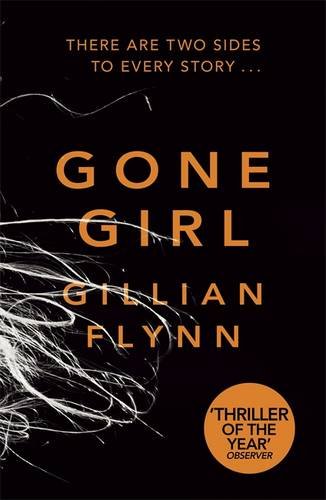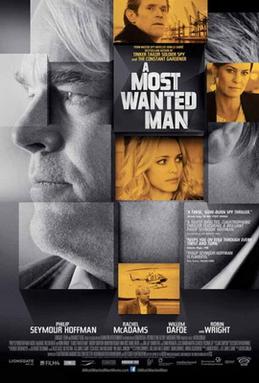Head Writer and Executive Producer: Russel T. Davies
Main Cast: David Tennant, Billie Piper, Noel Clarke, Camille Codurri, Shaun Dingwall
Main Cast: David Tennant, Billie Piper, Noel Clarke, Camille Codurri, Shaun Dingwall
Although the second season of Doctor Who contains more middling episodes than the first, it manages to successfully build up on the show's success and delivers many very exciting episodes. Season 2 differs significantly in tone as it features the new Tenth Doctor played by Scottish actor David Tennant. Although I did enjoy the Ninth Doctor played by Christopher Eccleston, I must admit that Tennant's Doctor is much more charistmatic and light-hearted, despite the fact that sometimes he gets very serious and apologetic. What do I mean by this? One of the new Doctor's favourite expressions is the French phrase "Allons-y", which means "let's go." This brings a lot of energy to the series but at the same time the Doctor compensates for this through one of his other favourite phrases - "I'm sorry. I'm so sorry" - which he uses in different versions in tragic moments.
Nevertheless, Season 2 of Doctor Who is an absolute triumph. While it does not have an overarching storyline as Season 1 did with Bad Wolf, it has some excellent episodes that offer engaging storylines and lead to a very exciting conclusion.
Although it is difficult to choose a favourite episode, I would have to say that mine is The Girl in the Fireplace, in which the Doctor meets the famous Madame de Pompadour (Sophia Myles), official mistress of Louis XV. This is the first episode in which we see the Doctor connect with a person other than Rose and it also shows us how lonely he actually is. The emotional core of the story is the attraction between the Doctor and Madame de Pompadour and I can't imagine that anyone would be disappointed by this episode.
There are also several other excellent stories in the season. The 2-part story about the Cybermen consists of Rise of the Cyberman and The Age of Steel in which the Doctor, Rose and Mickey travel to a parallel world in which they face the Doctor's old enemies and encounter someone important from Rose's past. Even better is the 2-part story about an impossible planet orbiting a black hole, which consists of The Impossible Planet and The Satan Pit. This is an incredibly well-written episode in which the Doctor, who is usually very confident even in difficult situations, is forced to take a leap of faith. I'll leave you to figure out what this means. The first episode, The Impossible Planet, also features a great scene in which one of the characters quotes the following lines from Thomas Babington Macaulay's poem Horatius:
For how should man die better,
Than facing fearful odds,
For the ashes of his father
And the temples of his gods.
The final 2-parter, consisting of Army of Ghosts and Doomsday, is suitably epic and it builds on events that have occured throughout the season. It features a grand battle in which the Doctor is forced to rely on the help of humans in order to defeat the latest threat to Earth.
Unfortunately, the standlone episodes in the season are not nearly as good as the ones in the previous season. Whereas Season 1 had the excellent The Unquiet Dead and Dalek, the only oustanding standalone episode of Season 2 is Tooth and Claw. However, it offers an exhilarating story taking place in Scotland in the Victorian era, which gives David Tennant a rare chance to use his Scottish accent, and it introduces us to the legendary Queen Victoria. New Earth is also a very good episode which features the return of a previous enemy of the Doctor and Rose and a mysterious character who will play an important role in the Doctor's future - the Face of Boe. The rest of the standalone episodes, The Idiot's Lantern, Love & Monsters and Fear Her are simply okay, although Love & Monsters is excellent in parts as it is the only episode in the season not centred on the Doctor and it features great interactions between a group of seemingly uninteresting characters.
In short, Season 2 takes Doctor Who to new heights and it features many exciting and interesting stories. It gives us the opportunity to learn more about Rose's boyfriend Mickey Smith (Noel Clarke) and her mother (Camille Codurri). Although the season lacks the magnetic presence of Captain Jack Harkness(John Barrowman), who seemingly died in Season 1's last episode and was then resurrected by Rose, it compensates for this with the new Doctor's charisma. It also explores the deepening relationship between the Doctor and Rose, which had already started to develop in Season 1. However, it becomes much more important in Season 2 and it plays a central part in the season finale. If you would like to find out more, just go ahead and buy, rent or watch the season online. I promise that you won't regret it.
Nevertheless, Season 2 of Doctor Who is an absolute triumph. While it does not have an overarching storyline as Season 1 did with Bad Wolf, it has some excellent episodes that offer engaging storylines and lead to a very exciting conclusion.
Although it is difficult to choose a favourite episode, I would have to say that mine is The Girl in the Fireplace, in which the Doctor meets the famous Madame de Pompadour (Sophia Myles), official mistress of Louis XV. This is the first episode in which we see the Doctor connect with a person other than Rose and it also shows us how lonely he actually is. The emotional core of the story is the attraction between the Doctor and Madame de Pompadour and I can't imagine that anyone would be disappointed by this episode.
There are also several other excellent stories in the season. The 2-part story about the Cybermen consists of Rise of the Cyberman and The Age of Steel in which the Doctor, Rose and Mickey travel to a parallel world in which they face the Doctor's old enemies and encounter someone important from Rose's past. Even better is the 2-part story about an impossible planet orbiting a black hole, which consists of The Impossible Planet and The Satan Pit. This is an incredibly well-written episode in which the Doctor, who is usually very confident even in difficult situations, is forced to take a leap of faith. I'll leave you to figure out what this means. The first episode, The Impossible Planet, also features a great scene in which one of the characters quotes the following lines from Thomas Babington Macaulay's poem Horatius:
For how should man die better,
Than facing fearful odds,
For the ashes of his father
And the temples of his gods.
The final 2-parter, consisting of Army of Ghosts and Doomsday, is suitably epic and it builds on events that have occured throughout the season. It features a grand battle in which the Doctor is forced to rely on the help of humans in order to defeat the latest threat to Earth.
Unfortunately, the standlone episodes in the season are not nearly as good as the ones in the previous season. Whereas Season 1 had the excellent The Unquiet Dead and Dalek, the only oustanding standalone episode of Season 2 is Tooth and Claw. However, it offers an exhilarating story taking place in Scotland in the Victorian era, which gives David Tennant a rare chance to use his Scottish accent, and it introduces us to the legendary Queen Victoria. New Earth is also a very good episode which features the return of a previous enemy of the Doctor and Rose and a mysterious character who will play an important role in the Doctor's future - the Face of Boe. The rest of the standalone episodes, The Idiot's Lantern, Love & Monsters and Fear Her are simply okay, although Love & Monsters is excellent in parts as it is the only episode in the season not centred on the Doctor and it features great interactions between a group of seemingly uninteresting characters.
In short, Season 2 takes Doctor Who to new heights and it features many exciting and interesting stories. It gives us the opportunity to learn more about Rose's boyfriend Mickey Smith (Noel Clarke) and her mother (Camille Codurri). Although the season lacks the magnetic presence of Captain Jack Harkness(John Barrowman), who seemingly died in Season 1's last episode and was then resurrected by Rose, it compensates for this with the new Doctor's charisma. It also explores the deepening relationship between the Doctor and Rose, which had already started to develop in Season 1. However, it becomes much more important in Season 2 and it plays a central part in the season finale. If you would like to find out more, just go ahead and buy, rent or watch the season online. I promise that you won't regret it.
Image taken from Amazon.co.uk




